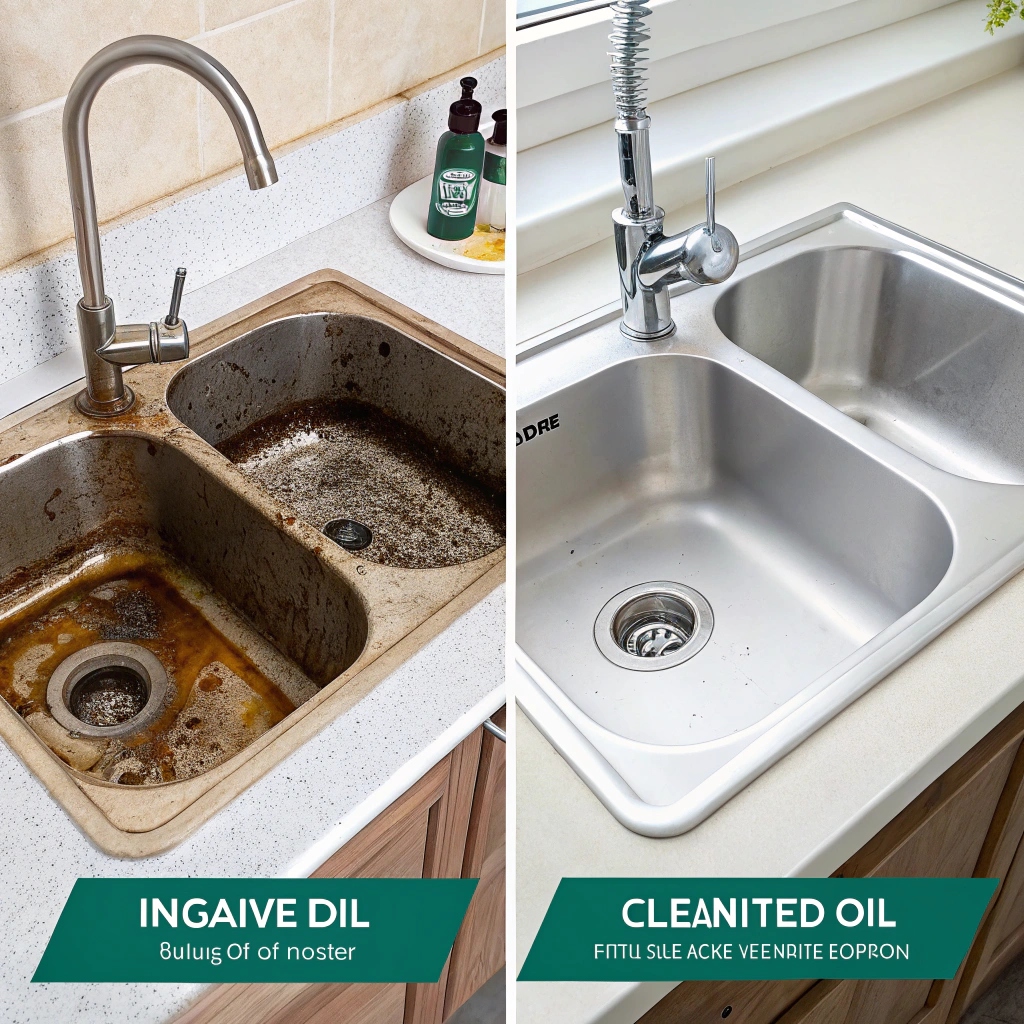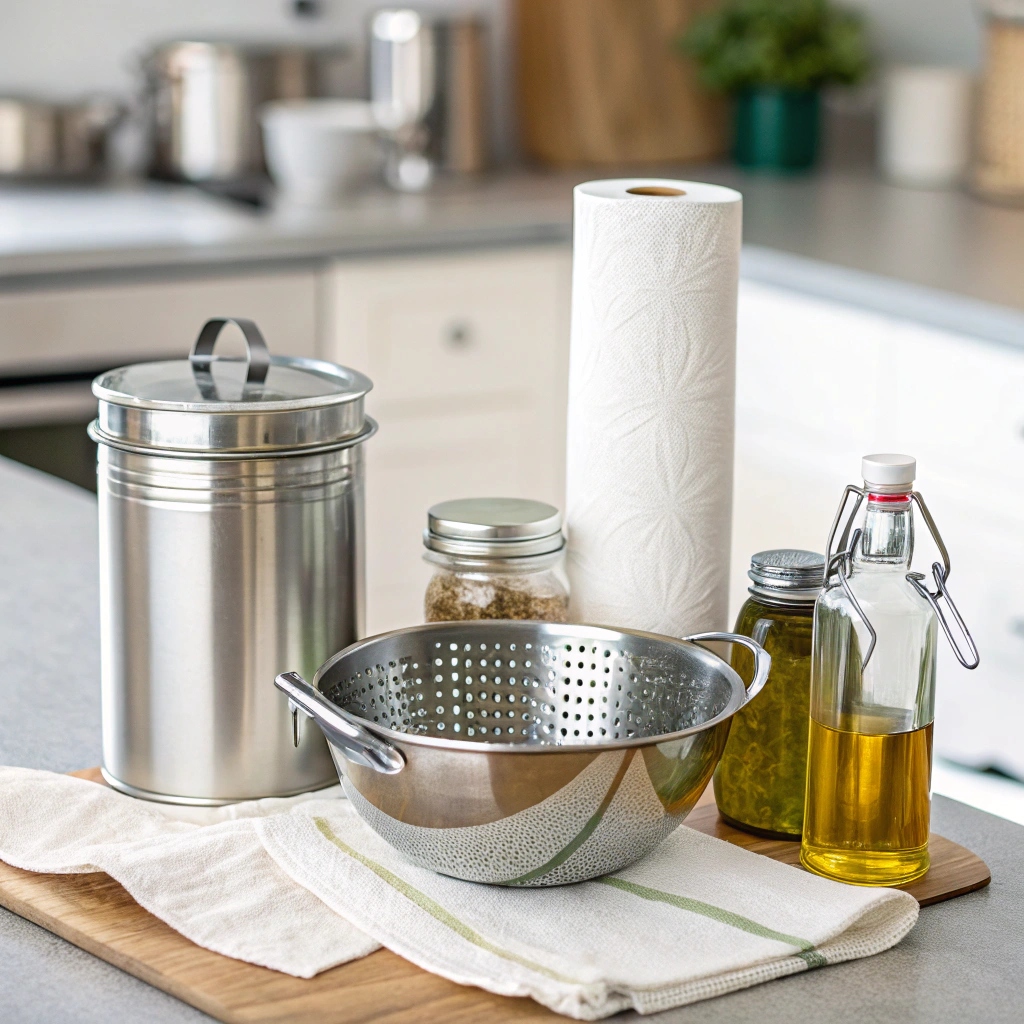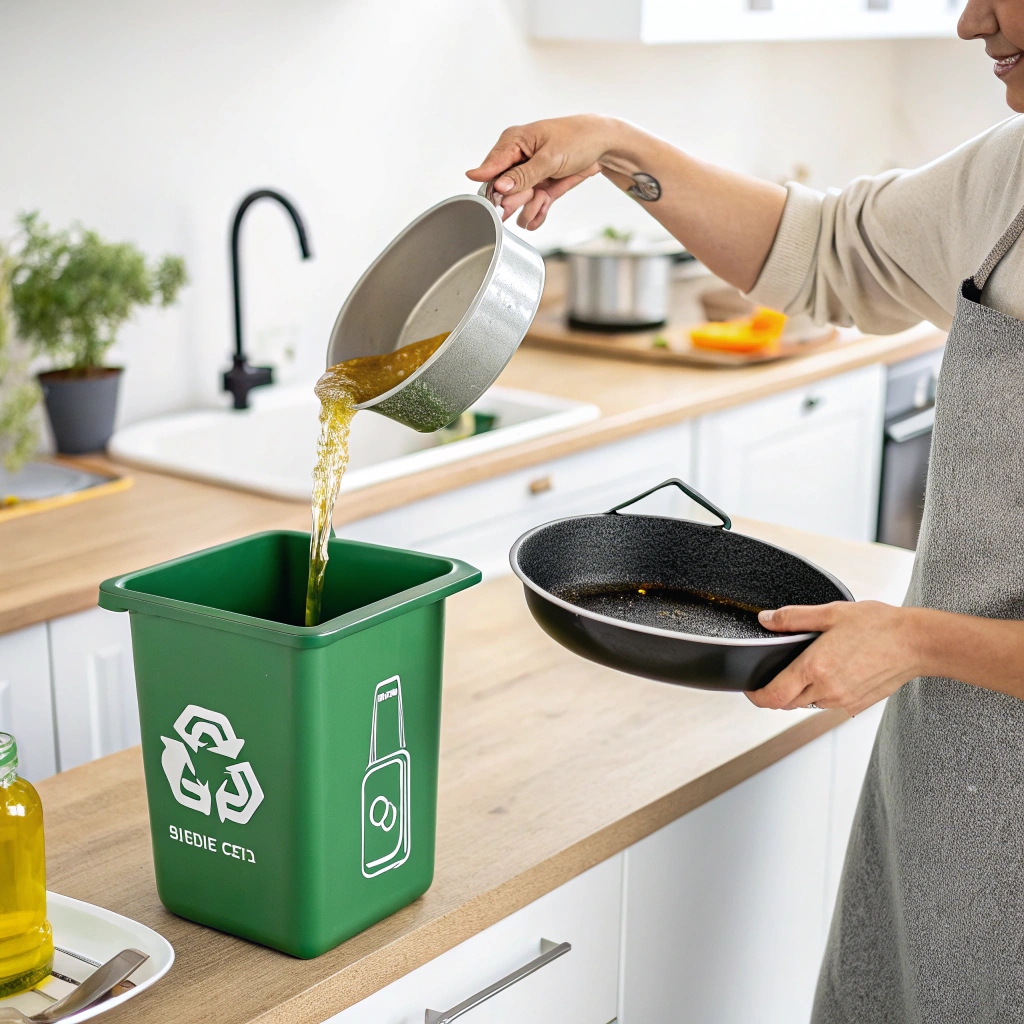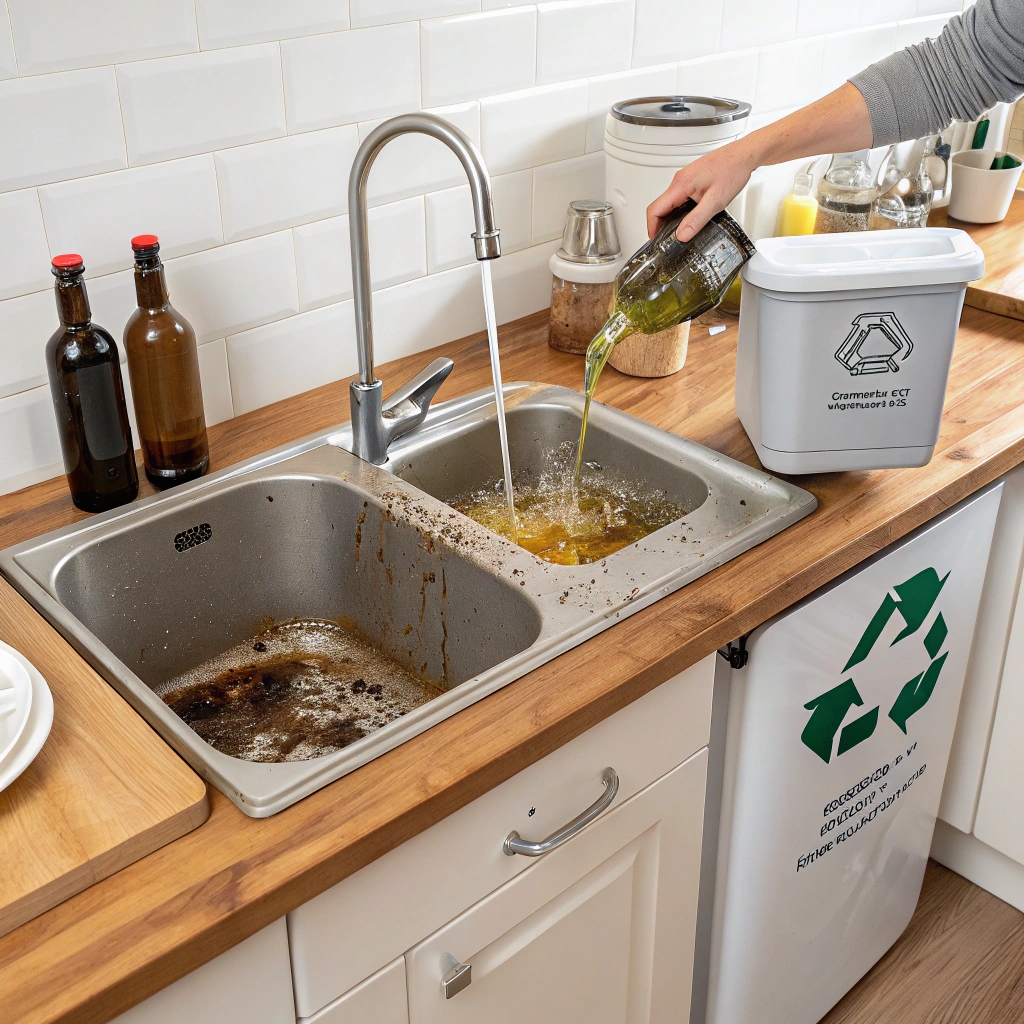Introduction
Many people pour used cooking oil down the kitchen sink without a second thought. It seems like an easy way to dispose of it, especially when it’s in liquid form. However, this habit can cause serious plumbing issues and environmental harm. Even small amounts of oil can solidify, leading to stubborn blockages in pipes and costly repairs.
Beyond household plumbing, pouring oil down the drain contributes to larger-scale problems. In municipal sewer systems, oil and grease combine with other debris to create massive clogs known as “fatbergs.” These hardened blockages can damage sewage systems and result in expensive maintenance.
Fortunately, there are safe and responsible ways to dispose of cooking oil that help protect your plumbing and the environment. This guide will explain why oil should never go down the sink, how to properly get rid of it, and what happens if you accidentally pour it down the drain. By the end, you’ll have a clear understanding of how to handle used cooking oil the right way.
Key Benefits of Proper Oil Disposal

Disposing of cooking oil correctly has several advantages, both for your home and the environment.
- Prevents Clogged Pipes: Oil solidifies as it cools, sticking to pipes and forming stubborn blockages. Proper disposal keeps your plumbing system free of buildup.
- Reduces Plumbing Costs: Avoiding drain blockages means fewer plumbing issues and costly repairs.
- Protects Water Quality: Dumping oil into drains can contaminate local water sources, affecting marine life and drinking water.
- Helps Recycling Efforts: Used oil can be recycled into biodiesel or repurposed for industrial uses, reducing waste.
- Improves Sewer System Efficiency: By keeping oil out of drains, you prevent large-scale blockages in municipal sewer lines, reducing maintenance costs.
Understanding these benefits makes it clear why proper oil disposal is essential for both households and communities.
Ingredients (or Materials Needed for Proper Oil Disposal)

To dispose of cooking oil safely, you’ll need a few simple materials:
- A heat-resistant container (e.g., glass jar, metal can, or plastic bottle) for storing used oil.
- Paper towels or coffee filters to strain out food particles.
- A funnel for pouring oil into containers without spills.
- Sealable plastic bags for small amounts of oil that will be discarded.
- Absorbent materials (such as cat litter or sawdust) to soak up small amounts of oil before disposal.
Having these items ready makes the disposal process easier and cleaner.
Instructions for Properly Disposing of Cooking Oil

Follow these steps to dispose of cooking oil responsibly:
- Let the oil cool completely. Never handle hot oil, as it can cause burns or melt plastic containers.
- Strain out food particles using a coffee filter or fine strainer.
- Store used oil in a sealable container. If you plan to reuse it, keep it in a cool, dark place. Otherwise, prepare it for disposal.
- Check for local recycling options. Many cities have collection sites for used cooking oil, which can be turned into biodiesel.
- If recycling isn’t available, dispose of it properly:
- Mix small amounts of oil with an absorbent material (cat litter, sawdust, or flour) before throwing it in the trash.
- If you must pour oil into the trash, ensure it’s sealed in a non-leaking container.
- Never pour oil down the sink, toilet, or storm drains. These lead to plumbing issues and environmental damage.
Pro Tips and Variations
- Reuse Cooking Oil: If the oil is still clean, strain out food debris and store it for future use.
- Freeze for Easy Disposal: Pour oil into a sealable bag and freeze it before throwing it away. This prevents spills and mess.
- Composting Small Amounts: Some plant-based oils (like olive or coconut oil) can be added to compost in tiny amounts.
- DIY Oil-Based Products: Some people repurpose used oil for homemade candles or soap.
- Take Oil to Restaurants: Some restaurants accept used cooking oil for recycling. Call ahead to check availability.
Conclusion
Pouring oil down the kitchen sink may seem harmless, but it leads to serious plumbing and environmental issues. By disposing of it properly, you protect your home, reduce costly repairs, and contribute to a cleaner environment. Whether you recycle it, repurpose it, or safely dispose of it in the trash, small actions can make a big difference.
Being mindful of how you handle used cooking oil ensures that your kitchen remains functional and that sewer systems operate efficiently. Make the effort today, and your pipes—and the planet—will thank you.
FAQs
Q: Is it okay to pour cooking oil down the sink?
A: No, even small amounts of oil can build up and cause serious blockages in pipes and sewer systems. Always dispose of oil properly.
Q: How do you dispose of unwanted oil?
A: Let it cool, store it in a sealed container, and check if your area has recycling programs. If not, mix it with absorbent material before throwing it in the trash.
Q: Where should I pour my oil?
A: Never pour it down drains. Instead, collect it in a container for disposal or repurpose it for other household uses.
Q: What happens if you put oil in the kitchen sink?
A: Oil can solidify and clog pipes, leading to expensive plumbing repairs. It can also contribute to sewer system fatbergs, causing widespread damage.

